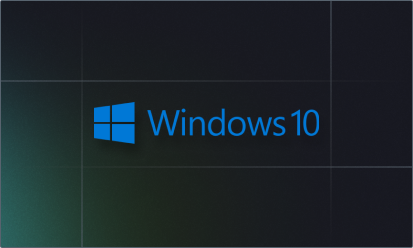Windows 10 will stop receiving free security updates on October 14 2025, after which organizations must either pay for Extended Security Updates or move to Windows 111,2. Unlike its predecessor, Windows 11 is engineered as an AI-centric operating system: Copilot first appeared as an optional sidebar in version 22H2 and became a standard, on-by-default feature in the 23H2 release that began rolling out on 26 September 2023 3,4. New “Copilot+” PCs with neural-processing units add on-device capabilities such as Recall (timeline search across everything you’ve seen), Cocreator for real-time image generation, Live Captions that translate audio from more than forty languages into English, automatic super-resolution for games, and Windows Studio visual and voice enhancements 5,6. Microsoft is also quietly weaving AI deeper into the shell—for example, right-clicking a file now surfaces AI actions like background removal or instant summarization, and an “Ask Copilot” option is appearing across context menus 8; on Snapdragon-powered systems these actions tap a small local language model called Phi Silica to keep latency low and some data on the device 7.
These defaults create fresh governance challenges. Recall snapshots, context-menu image edits and Copilot queries can all capture or transmit sensitive data without users realizing; third-party Copilot plug-ins introduce yet another path for regulated content to leave the endpoint; and because Copilot traffic flows to cloud models, traditional DLP policies that watch files rather than prompts have blind spots.
At Build 2025 Microsoft previewed Model Context Protocol (MCP) support in Windows 11, describing MCP as a standards-based way for autonomous AI agents to exchange context with the OS and with each other—laying the groundwork for an “agentic desktop.” Early developer builds include an MCP Registry and optional MCP Server, but Microsoft stresses that the feature is still in private preview and security hardening is ongoing 9,10,11. Enterprises should track MCP because it will allow agents to read files, drive applications and orchestrate multi-step tasks once it matures, expanding both productivity potential and the data-exposure surface.
WitnessAI addresses those gaps today. Witness Discovery automatically inventories every Copilot query, Recall action and AI context-menu invocation, giving security teams a living catalogue of who used which AI feature and when. The Data Protection Guardrail applies pattern-plus-ML filtering to strip out credit-card numbers, source code or M&A documents before they reach Copilot or Recall. Risk Analysis and Behavioral Activity Guardrails score each prompt for intent—flagging, throttling or blocking mass file reads or attempts to summarize entire contract folders—while inline warn responses educate users on safer workflows.
In practice, enterprises should pin three dates to the wall: 1) October 14 2025 for Windows 10 end-of-life, 2) the next hardware refresh cycle when Copilot+ PCs enter the fleet, and 3) the internal deadline for turning on WitnessAI guardrails in pilot labs. Windows 11’s AI features promise genuine productivity gain, but visibility and policy must be in place before employees paste customer data into a sidebar they think is “local.”
References
[1] Microsoft, “End of support for Windows 10.”
[2] Windows Experience Blog, “How to prepare for Windows 10 end of support by moving to Windows 11.”
[3] Reworked, “Microsoft confirms Copilot general release date, rolls out Copilot in Windows 11.”
[4] BornCity, “Windows 11 23H2 will be released on September 26 2023 with Copilot.”
[5] Microsoft Blog, “Introducing Copilot+ PCs.”
[6] Microsoft Support, “Learn more about Copilot+ PCs and Windows 11 PCs from Surface.”
[7] BornCity, “Microsoft rolls out Recall for Windows 11 24H2 on Copilot+ PCs.”
[8] The Verge, “Microsoft is putting AI actions into Windows File Explorer.”
[9] Windows Experience Blog, “Securing the Model Context Protocol: Building a safer agentic future on Windows.”
[10] Microsoft Blog, “Build 2025: The age of AI agents and building the open agentic web.” [11] Windows Central, “Windows 11 is gaining Model Context Protocol support.”
